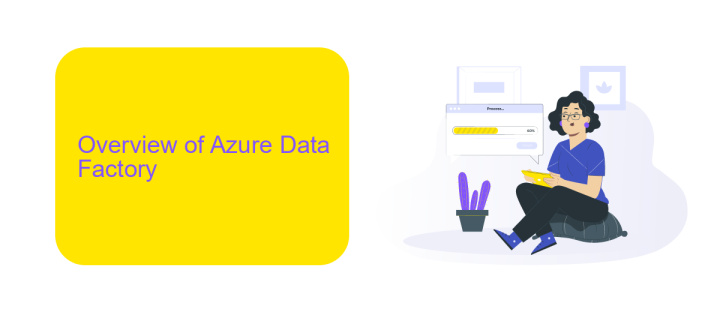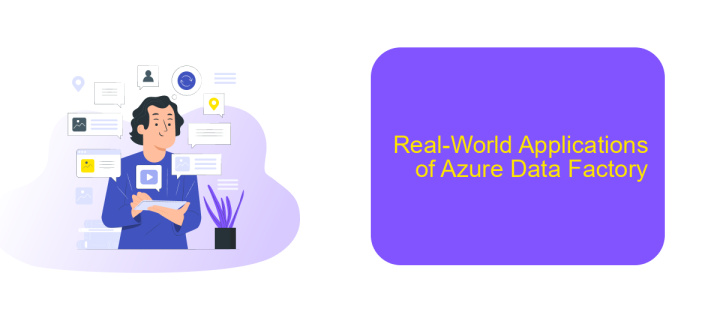What is the Purpose of Azure Data Factory
Azure Data Factory is a cloud-based data integration service that enables the creation, scheduling, and orchestration of data workflows. Its primary purpose is to facilitate the movement and transformation of data from various sources to destinations, ensuring seamless data processing and analytics. This article explores the core functionalities and benefits of Azure Data Factory, highlighting its role in modern data management.
Introduction
Azure Data Factory (ADF) is a cloud-based data integration service that allows you to create, schedule, and orchestrate data workflows at scale. It is designed to handle complex data integration scenarios, enabling businesses to move and transform data from various sources to their desired destinations efficiently.
- Seamless data movement between on-premises and cloud environments
- Rich data transformation capabilities for data preparation and analytics
- Scalability to manage large volumes of data
- Integration with a wide range of data sources and destinations
- Support for monitoring and managing data workflows
Using services like ApiX-Drive, businesses can enhance their data integration processes by automating the connection between different applications and systems. This allows for a more streamlined and efficient data flow, reducing the time and effort required to manage data pipelines. With Azure Data Factory and ApiX-Drive, organizations can ensure their data is always up-to-date and readily available for analysis and decision-making.
Overview of Azure Data Factory

Azure Data Factory (ADF) is a cloud-based data integration service that enables the creation, scheduling, and orchestration of data workflows. It is designed to handle complex data extraction, transformation, and loading (ETL) processes, allowing organizations to efficiently move and transform data from various sources to their desired destinations. ADF supports a wide range of data sources, including on-premises databases, cloud storage, and SaaS applications, making it a versatile tool for modern data engineering needs.
One of the key features of Azure Data Factory is its ability to integrate seamlessly with other Azure services and third-party tools. For instance, integrating ADF with ApiX-Drive can enhance automation by allowing users to connect and synchronize data across multiple platforms without manual intervention. This integration capability ensures that data workflows are not only efficient but also scalable and adaptable to changing business requirements. Overall, Azure Data Factory provides a robust framework for managing data pipelines, ensuring data consistency, and enabling data-driven decision-making.
Benefits of Using Azure Data Factory

Azure Data Factory (ADF) offers numerous benefits for organizations looking to streamline their data integration and transformation processes. One of the primary advantages is its ability to handle large volumes of data from diverse sources, enabling seamless data movement and transformation across on-premises and cloud environments.
- Scalability: ADF can scale out to meet the demands of large data workloads, ensuring efficient processing and reducing latency.
- Cost-Effectiveness: With a pay-as-you-go pricing model, ADF allows organizations to manage costs effectively by paying only for the resources they use.
- Integration Capabilities: ADF supports integration with a wide range of data sources and services, including ApiX-Drive, which facilitates smooth data integration and automation across various platforms.
- Security: ADF provides robust security features, including data encryption, role-based access control, and compliance with industry standards.
- Automation: ADF enables the automation of data workflows, reducing manual intervention and increasing operational efficiency.
By leveraging these benefits, organizations can optimize their data management processes, improve data quality, and gain valuable insights to drive informed decision-making. Azure Data Factory thus plays a critical role in modern data strategies, enabling businesses to stay competitive in a data-driven world.
Real-World Applications of Azure Data Factory

Azure Data Factory (ADF) is a powerful tool used to create, schedule, and orchestrate data workflows in the cloud. It is widely adopted across various industries for its ability to handle complex data integration scenarios and automate data movement and transformation processes.
One of the primary real-world applications of ADF is in the field of ETL (Extract, Transform, Load) operations. Businesses use ADF to extract data from various sources, transform it into a usable format, and load it into data warehouses or other storage solutions. This automation not only saves time but also ensures data accuracy and consistency.
- Data migration: Seamlessly move data between on-premises and cloud environments.
- Data integration: Combine data from multiple sources to create a unified data view.
- Data transformation: Cleanse and transform raw data into meaningful insights.
- Workflow automation: Schedule and monitor complex data workflows with ease.
Moreover, integrating Azure Data Factory with services like ApiX-Drive can further enhance its capabilities. ApiX-Drive simplifies the process of connecting various applications and automating data flows, making it easier to set up and manage integrations without extensive coding knowledge. This combination allows businesses to streamline their data operations and focus on deriving actionable insights.
Conclusion
Azure Data Factory serves as a powerful and versatile data integration service, enabling seamless data movement and transformation across various platforms and environments. Its ability to handle complex data workflows, combined with its scalability and flexibility, makes it an essential tool for organizations looking to optimize their data management processes. By leveraging Azure Data Factory, businesses can ensure efficient data integration, streamline operations, and gain valuable insights from their data.
Moreover, integrating services like ApiX-Drive can further enhance the capabilities of Azure Data Factory. ApiX-Drive provides an additional layer of automation and integration, allowing for smoother and more efficient data workflows. This combination empowers organizations to not only manage their data more effectively but also to connect disparate systems and applications seamlessly. In conclusion, Azure Data Factory, complemented by tools like ApiX-Drive, offers a comprehensive solution for modern data integration challenges, driving better decision-making and operational efficiency.
- Automate the work of an online store or landing
- Empower through integration
- Don't spend money on programmers and integrators
- Save time by automating routine tasks
FAQ
What is Azure Data Factory?
How does Azure Data Factory help in data integration?
Can Azure Data Factory be used for ETL processes?
What are the key components of Azure Data Factory?
How can I automate data workflows using Azure Data Factory?
Apix-Drive is a simple and efficient system connector that will help you automate routine tasks and optimize business processes. You can save time and money, direct these resources to more important purposes. Test ApiX-Drive and make sure that this tool will relieve your employees and after 5 minutes of settings your business will start working faster.


